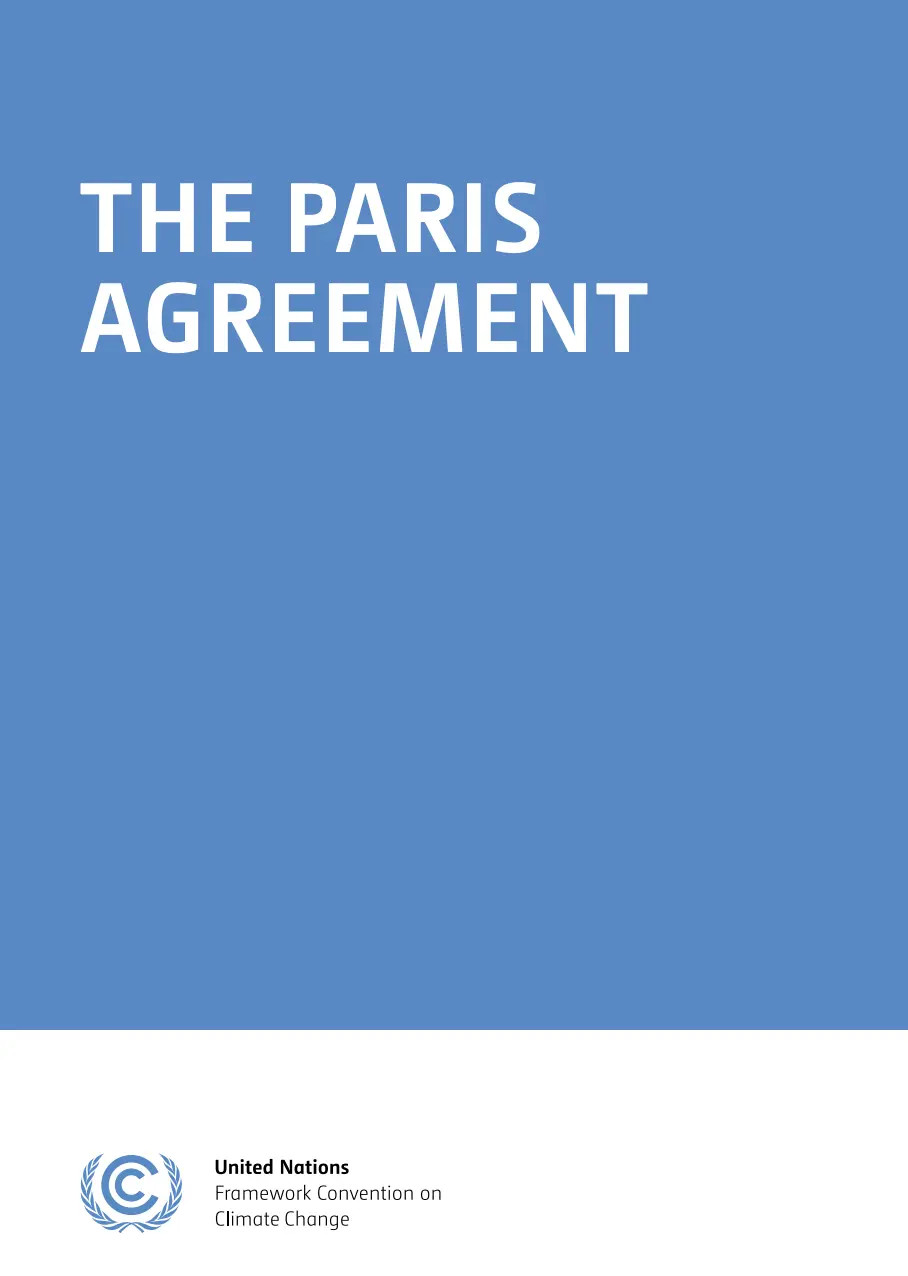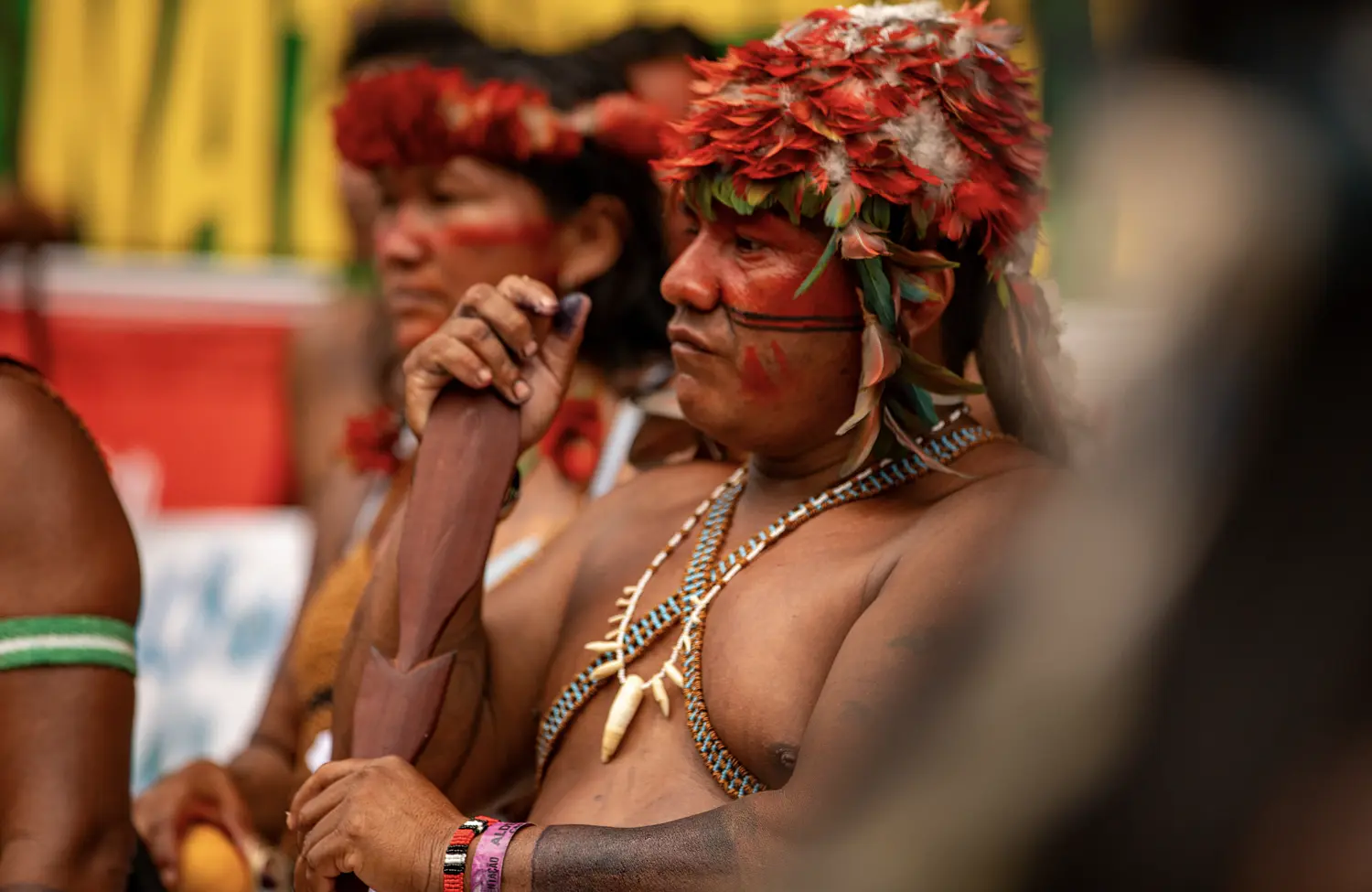The WWF is run at a local level by the following offices...
- WWF Global
- Adria
- Argentina
- Armenia
- AsiaPacific
- Australia
- Austria
- Azerbaijan
- Belgium
- Bhutan
- Bolivia
- Borneo
- Brazil
- Bulgaria
- Cambodia
- Cameroon
- Canada
- Caucasus
- Central African Republic
- Central America
- Central Asia
- Chile
- China
- Colombia
- Croatia
- Democratic Republic of the Congo
- Denmark
- Ecuador
- European Policy Office
- Finland
© Mike Eames
The UN climate change conference, COP29, was held in Baku, Azerbaijan from 11-24 November 2024.
We have lived through the warmest year in recorded history. Without swift cuts to emissions, we will overshoot the Paris Agreement's long term 1.5°C threshold in the next decade, and then face the even greater challenge and cost of bringing temperatures back down to below that level.
Preventing every additional increment of warming matters now for people and nature. The more temperatures rise, the more extreme the impacts of climate change will be, and the higher the risk of tipping points and irreversible impacts to ecosystems and people’s lives and livelihoods.
We need to urgently scale up efforts to help people and nature adapt to a warming world and to implement climate solutions - which are already available across all sectors and can more than halve emissions by 2030.
Preventing every additional increment of warming matters now for people and nature. The more temperatures rise, the more extreme the impacts of climate change will be, and the higher the risk of tipping points and irreversible impacts to ecosystems and people’s lives and livelihoods.
We need to urgently scale up efforts to help people and nature adapt to a warming world and to implement climate solutions - which are already available across all sectors and can more than halve emissions by 2030.
Policy Resources
- WWF Submission - Mitigation Work Programme (Feb 2024)
- WWF Climate and Energy Policy Manifesto 2024
- WWF 2nd Submission on 9th TED of NCQG March 2024
- WWF Submission - Mitigation Work Programme (Feb 2024)
- WWF Global Energy Policy Framework (Nov 2023)
- Energy Transition Package (Bonn, June 2024)
- WWF COP29 Expectations Paper
- Climate and Nature Work Programme Proposal for UNFCCC
- WWF Policy Briefing on Climate Finance at COP29
Catch-Up on COP29
Wondering what happened after two weeks of negotiations at the UN climate talks in Azerbaijan?
 © WWF
© WWF
After two weeks of tense and polarised negotiations, countries agreed a weak deal that did not meet urgent needs on multiple fronts.
So, what exactly happened at the fourth longest COP ever?
Finance
The agreed climate finance deal was a setback for climate action and does not come close to meeting the needs of developing countries.
At the last minute, a roadmap to scale up finance towards $1.3 trillion for developing countries was added to the text, but this gives little reason to be confident that this level of finance will be delivered after G20 leaders reaffirmed the need to rapidly and substantially scale up climate finance from billions to trillions.
The weakness of this deal risks leaving vulnerable communities exposed to an onslaught of escalating climate catastrophes. This is a serious blow to climate action, but it must not stall the solutions that are desperately needed around the world.
Fossil fuel phase out
COP29 failed to send a strong signal on the need to rapidly reduce emissions and phase out fossil fuels.
In the year that countries were deciding on their new national climate plans, it was unacceptable for COP29 not to send a strong message on the need to cut emissions and phase out fossil fuels, backed up by adequate finance.
We did, however, welcome the Global Clean Power Alliance announced at the G20 Leaders Summit. The Alliance was launched by the UK Prime Minister Keir Starmer alongside Brazilian President Luiz Inácio Lula da Silva and aims to unite developing and developed countries around to accelerate the global clean energy transition.
Burning of fossil fuels and industry account for over 75% of global man-made greenhouse gas emissions and nearly 90% of carbon dioxide emissions.
An urgent transition to renewable power away from coal, oil or gas is needed to slash emissions. This alliance can help drive this energy transition, providing it leads to real action on the ground.
Nature
Despite climate and nature being inextricably linked, negotiations sent weak signals about the need to accelerate action on both in parallel. Nature featured strongly in side-events and peripheral initiatives, but without a home in the formal negotiations, this crucial element of climate action risks being sidelined.
Climate and nature must go hand in hand if we are to secure a living planet for future generations.
Final verdict
The COP29 outcome risked setting back climate action at just the moment when accelerating it is most critical. But the science remains the same - we must accelerate action in this decade to prevent climate change spiralling out of control.
All national and corporate leaders have a responsibility to step up, go beyond the parameters of this deal, and deliver sufficient levels of finance to deliver the transformational changes needed. The incoming Brazilian presidency will need engagement from all parties to manage this roadmap process towards a meaningful outcome by COP30 in Belem to ensure substantial amounts of finance are mobilised.
WWF will keep working to help make sure this multilateral process, that has proved its resilience before, is strengthened and can deliver the results the world needs.
So, what exactly happened at the fourth longest COP ever?
Finance
The agreed climate finance deal was a setback for climate action and does not come close to meeting the needs of developing countries.
At the last minute, a roadmap to scale up finance towards $1.3 trillion for developing countries was added to the text, but this gives little reason to be confident that this level of finance will be delivered after G20 leaders reaffirmed the need to rapidly and substantially scale up climate finance from billions to trillions.
The weakness of this deal risks leaving vulnerable communities exposed to an onslaught of escalating climate catastrophes. This is a serious blow to climate action, but it must not stall the solutions that are desperately needed around the world.
Fossil fuel phase out
COP29 failed to send a strong signal on the need to rapidly reduce emissions and phase out fossil fuels.
In the year that countries were deciding on their new national climate plans, it was unacceptable for COP29 not to send a strong message on the need to cut emissions and phase out fossil fuels, backed up by adequate finance.
We did, however, welcome the Global Clean Power Alliance announced at the G20 Leaders Summit. The Alliance was launched by the UK Prime Minister Keir Starmer alongside Brazilian President Luiz Inácio Lula da Silva and aims to unite developing and developed countries around to accelerate the global clean energy transition.
Burning of fossil fuels and industry account for over 75% of global man-made greenhouse gas emissions and nearly 90% of carbon dioxide emissions.
An urgent transition to renewable power away from coal, oil or gas is needed to slash emissions. This alliance can help drive this energy transition, providing it leads to real action on the ground.
Nature
Despite climate and nature being inextricably linked, negotiations sent weak signals about the need to accelerate action on both in parallel. Nature featured strongly in side-events and peripheral initiatives, but without a home in the formal negotiations, this crucial element of climate action risks being sidelined.
Climate and nature must go hand in hand if we are to secure a living planet for future generations.
Final verdict
The COP29 outcome risked setting back climate action at just the moment when accelerating it is most critical. But the science remains the same - we must accelerate action in this decade to prevent climate change spiralling out of control.
All national and corporate leaders have a responsibility to step up, go beyond the parameters of this deal, and deliver sufficient levels of finance to deliver the transformational changes needed. The incoming Brazilian presidency will need engagement from all parties to manage this roadmap process towards a meaningful outcome by COP30 in Belem to ensure substantial amounts of finance are mobilised.
WWF will keep working to help make sure this multilateral process, that has proved its resilience before, is strengthened and can deliver the results the world needs.
The WWF Pavilion
The WWF Pavilion at COP29 hosted a wide array of events on topics ranging from the much-needed phase-out of fossil fuels to food systems, finance - including carbon markets, forests and nature-based solutions.
WWF Pavilion COP29 Programme Schedule
Watch the recordings
We Can't Let Our World Go Up In Smoke
Leaders must agree on a plan to phase out fossil fuels like coal, oil and gas - there is no time to waste.
Watch the other videos in this series
- Flammable Planet (2022)
- Can’t Negotiate the Melting Point of Ice (2021)
News and Press Enquiries
WWF has a number of experts available to provide commentary in multiple languages on topics ranging from what needs to happen at COP30 to deliver the energy transition and how to address the dual climate and nature crises.To set up an interview with one of our experts, contact news@wwfint.org
Climate & Energy: News and blog posts







